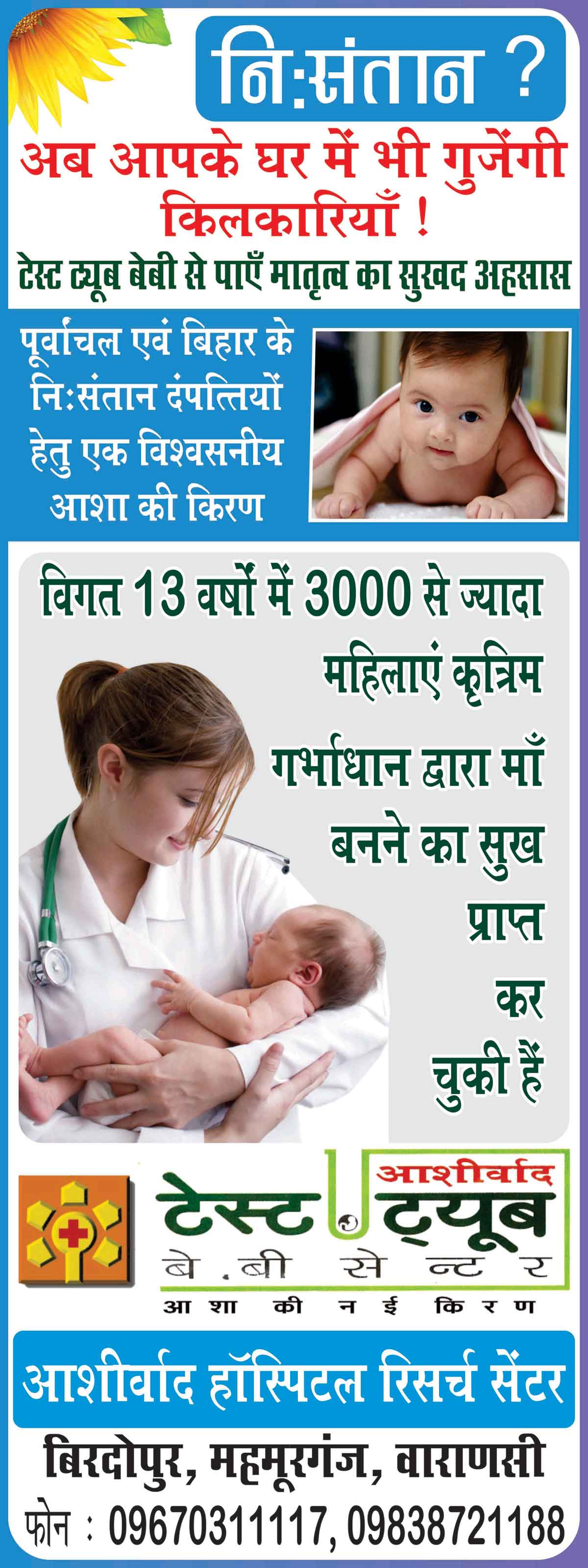Ashirvad has very vast experience for treatment of unexplained infertility, endometriosis, failed IUI etc. at its IVF. Our IVF unit is headed by Dr. Kaveri Gupta M.R.C.O.G. (London), who has special training in infertility & IVF in England for 5 years. We have been performing IVF since the past 11 years with world class success rates. A single IVF cycle takes four to six weeks to complete, and a pregnancy test is done approximately two weeks after the embryo transfer to check for the good news! In vitro fertilization is a complex series of procedures used to treat fertility or genetic problems and assist with the conception of a child. During IVF, mature eggs are collected (retrieved) from your ovaries and fertilized by sperm in a lab. Then the fertilized egg (embryo) or eggs are implanted in your uterus. One cycle of IVF takes about two weeks.
IVF is the most effective form of assisted reproductive technology. The procedure can be done using your own eggs and your partner's sperm. Or IVF may involve eggs, sperm or embryos from a known or anonymous donor. In some cases, a gestational carrier — a woman who has an embryo implanted in her uterus — might be used.
Your chances of having a healthy baby using IVF depend on many factors, such as your age and the cause of infertility. In addition, IVF can be time-consuming, expensive and invasive. If more than one embryo is implanted in your uterus, IVF can result in a pregnancy with more than one fetus (multiple pregnancy).
Your doctor can help you understand how IVF works, the potential risks and whether this method of treating infertility is right for you.
The diagnosis of infertility is often very overwhelming for patients. Not only are they faced with the news that conceiving a child is only possible through medical treatment, they are also presented with information that is totally new to them. New medical jargon along with recommendations for treatments and tests that are completely unfamiliar can be very intimidating for the newly diagnosed. AMSH Reproductive Specialists believes in creating a partnership with the patient and we have found that the most successful partnerships occur when the patient is well-informed and can play an active role in their treatment. We value an open and ethical relationship with each patient in an environment that fosters trust and mutual respect, an environment where questions are welcome and encouraged.
IVF technique is now mainly used following cases:


Gone are those days when age was a constraint to experience motherhood and attaining menopause came along with sorrow of inability to reproduce. IVF (In Vitro Fertilisation) has proved to be a boon to all those couples who’ve only dreamt of becoming parents but could never see their dream coming true due to insurmountable reasons.
The chances of giving birth to a healthy baby after using IVF depend on various factors, including:
The younger you are, the more likely you are to get pregnant and give birth to a healthy baby using your own eggs during IVF. Women age 41 and older are often counseled to consider using donor eggs during IVF to increase the chances of success.
Transfer of embryos which are more developed is associated with higher pregnancy rates compared with less developed embryos (day two or three). However, not all embryos survive the development process. Talk with your doctor or other care provider about your specific situation
Women who've previously given birth are more likely to be able to get pregnant using IVF than are women who've never given birth. Success rates are lower for women who've previously used IVF multiple times but didn't get pregnant.
Having a normal supply of eggs increases your chances of being able to get pregnant using IVF. Women who have endometriosis are less likely to be able to get pregnant using IVF than are women who have unexplained infertility.
Women who smoke typically have fewer eggs retrieved during IVF and may miscarry more often. Smoking can lower a woman's chance of success using IVF by 50 percent. Obesity can decrease your chances of getting pregnant and having a baby. Use of alcohol, recreational drugs, excessive caffeine and certain medications also can be harmful.